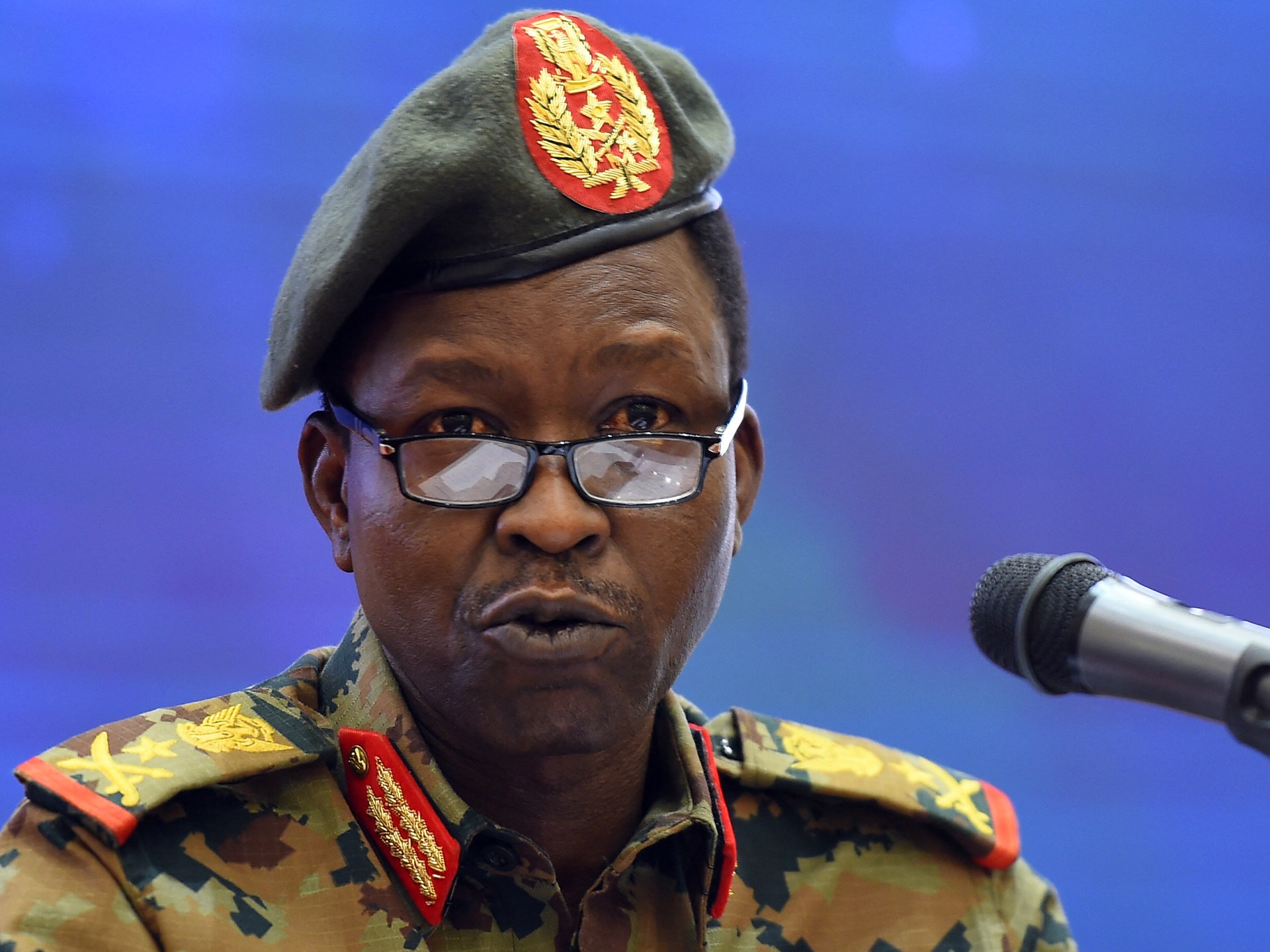A member of the Transitional Sovereignty Council in Sudan, Shams al-Din Kabbashi, said today, Sunday, that the political and military forces that signed the political framework agreement are not sufficient to solve the political problem.
Kabbashi added in a public speech in the state of South Kordofan that the armed forces are outside the process and stand at the same distance from all political initiatives, stressing that they will not proceed with the political framework agreement if other forces do not come up with an acceptable proposal to achieve consensus.
A member of the Sudanese Sovereignty Council also said that the armed forces "will not protect a constitution that is not agreed upon," calling on the signatories to the framework agreement to accept others.
The head of the Sovereignty Council, Abdel Fattah Al-Burhan, said yesterday, Saturday, that he does not seek a coup or change the situation in the country, and that he will not back down from the framework agreement.
Al-Burhan added in a public speech in the Shendi region (north of Khartoum) that 4 years have passed since what he described as change, but nothing new, at a time when disputes have increased, as he put it.
The framework agreement was signed on December 5, 2022, and it provides for a two-year transitional period led by civilians, but some political forces reject the agreement.
The Central Council of the Forces for Freedom and Change signed the framework agreement, while the Democratic Bloc abstained from signing it.
The bloc includes the Sudan Liberation Movement led by Minni Arko Minawi and the Justice and Equality Movement led by Jibril Ibrahim, in addition to the Unionist Party of origin led by Jaafar al-Mirghani, along with the Supreme Council of Beja Glasses, represented by Nazir Muhammad al-Amin Turk and others.
Al-Burhan led mediation to bridge views between the two wings of the Forces for Freedom and Change (the Central Council and the Democratic Bloc), but withdrew from it about two weeks ago, according to Sudanese sources.
"We will not proceed with it unless other reasonable and acceptable forces come from the political forces." Watch what a member of the Sovereign Council, Shams al-Din Kabbashi, said about the framework agreement# East_Sudan pic.twitter.com/jJ258AvkWY
- Al Sharq News - Sudan (@AsharqNewsSUD) February 5, 2023
opposition statements
In the reactions, the leader of the Arab Socialist Baath Party in Sudan, Wajdi Saleh, said that the statements of the President of the Sovereignty Council in Sudan, Abdel Fattah Al-Burhan, and member of the Council, Shams Al-Din Kabbashi, about the need to expand the umbrella of political consensus mean that what he described as a coup is still going on, and that the military will not hand over power until after full consensus.
Saleh added that complete consensus will come with political parties affiliated with the former regime, which means the continuation of military rule, leading to individual rule, as he put it.
For his part, the leader of the Forces for Freedom and Change - the Democratic Bloc - Abdel Aziz Asher told Al-Jazeera that political consensus is inevitable. Without consensus, the Sudanese crisis cannot be resolved, and he added that an attempt at exclusion and monopoly will be a failure and we will work for a comprehensive political consensus.
Since the signing of the framework agreement, opposition forces have organized demonstrations in Khartoum and other areas, and opponents of the agreement accuse the signatories of "betraying the revolution."
The latest agreement between the Sudanese parties aims to resolve a prolonged crisis since October 25, 2021, when the army commander, Abdel Fattah Al-Burhan, imposed exceptional measures, including the dissolution of the Sovereign Council and the transitional ministers, the arrest of ministers and politicians, the declaration of a state of emergency, and the dismissal of governors (governors).
And before Al-Burhan's exceptional procedures, on August 21, 2019, a transitional phase began in Sudan, which was scheduled to end with elections in early 2024, during which power would be shared by the army, civil forces, and armed movements that signed the Juba Peace Agreement in 2020 with the government.

